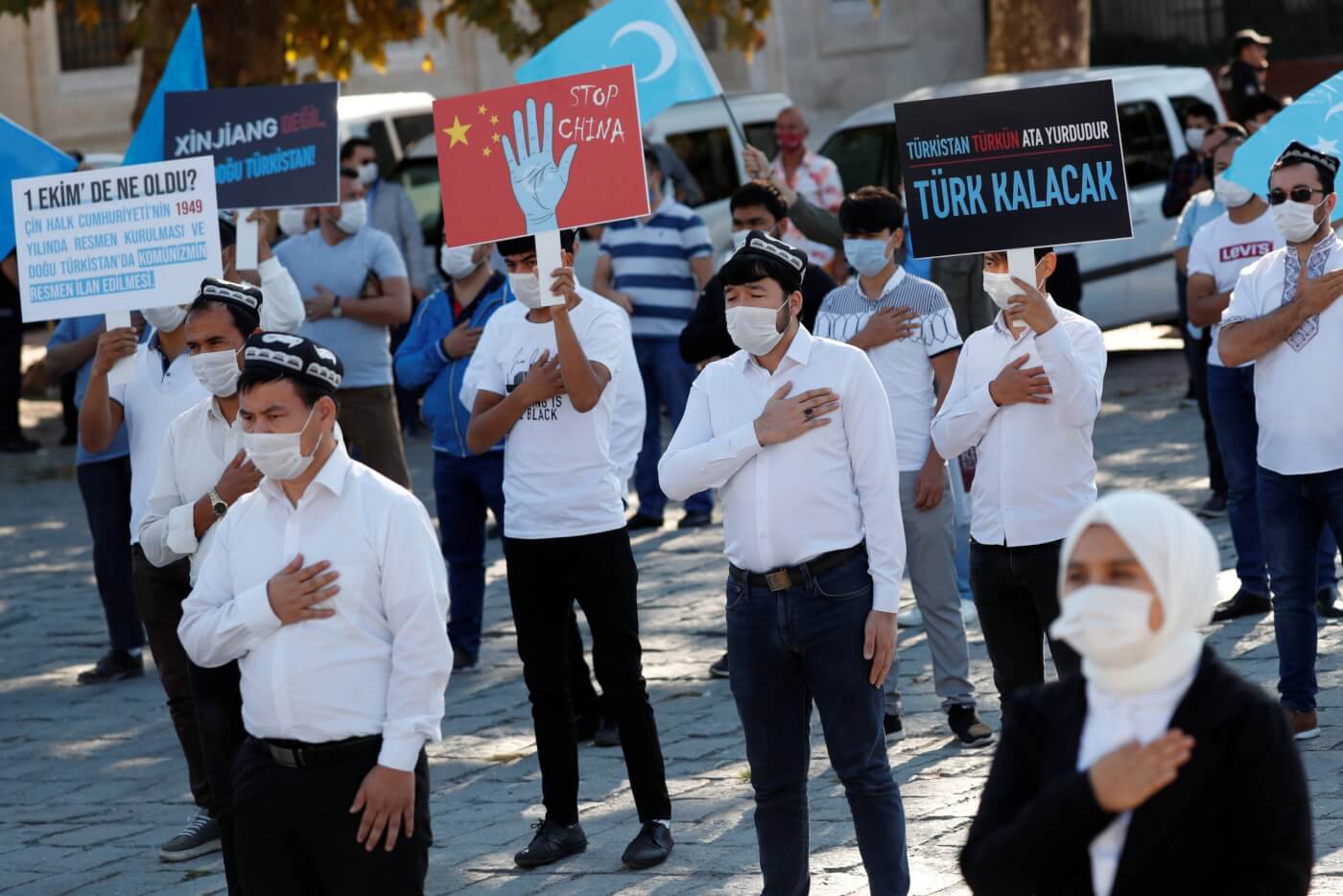Uyghurs demonstrating against the detention of relatives in China were arrested by the police in the Turkish capital Ankara on 10 February. The protesters gathered outside the Chinese embassy, demanding the truth from Beijing about the fate of their missing family members. At least 1 million Uyghurs are believed to be detained in internment camps in the autonomous region of Xinjiang. Conditions in the camps are have been described as ‘horrific’ by former detainees, and a recent BBC investigation uncovered evidence of this, discovering the shocking use of systematic rape and forced sterilisation of Uyghur women in detention.
The demonstrations
The demonstrations began in December and extended to Istanbul and Konya, a city located in south-central Turkey, which has been hosting exiled Uyghurs since 2013. Uyghurs have been protesting outside the Chinese embassy for two months on a daily basis, but public gatherings are currently banned due to the outbreak of Covid-19. Demonstrators reported that the Turkish police informed them that the arrests took place to protect protesters from self-harm. One of the detained protestors, Azimet Muhammed told the Times,
“They said one of us was shouting that we would burn ourselves, and we were detained so none of us would be harmed. They kept us in the police car for three hours and then we spent an hour and a half in the police station while they prepared a report.”
The protestors were released without charge a few hours later. Desperate for information about their family members, they tried to approach the Chinese Embassy again, but were stopped by 50 officers outside their hotel.
Turkey’s new China-focused foreign policy
The governor of Ankara has summoned the protesters to hear their demands, but justice for these families seems far, particularly when Turkey’s foreign policy is at a turning point. Opposition legislators have accused the Erdogan administration of selling out the Uyghurs in favour of vaccine exchange with China. Ankara has secured 50 million doses of China’s Coronavirus vaccine Sinovac and the first doses were initially slow to arrive in December, when the protests started. The legislators allege that China’s expectation that the Turkish government repress Uyghur voices in order to conserve their economic partnership seems to be coming to fruition.
As well as vaccine exchange opposition legislators also fear that Beijing will use the vaccines as leverage to bring forward an extradition treaty. Turkish parliament will debate the ratification of the treaty this month. If approved, the ethnic minority Uyghurs escaping what was defined as ‘genocide’ by former US secretary of State Mike Pompeo, might risk deportation to China.
Despite President Erdogan supporting the cause of the Uyghurs, a Turkic Muslim minority, Ankara urgently needs foreign investment to restore its economy. Will Turkey continue to limit the Uyghurs’ voices to keep close ties with its economic ally?

